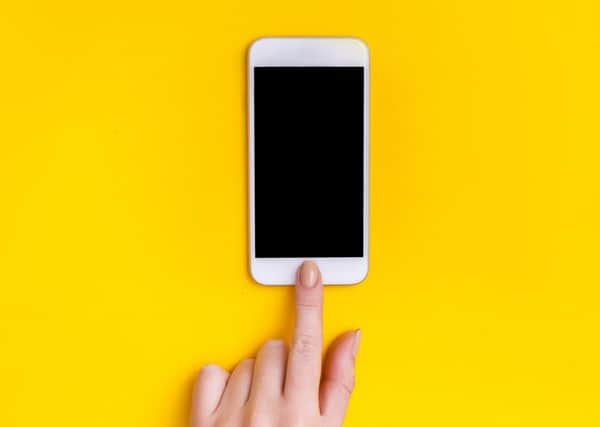James Walker: The right call for a longer-lasting mobile


When we buy goods, we have certain expectations about how long we expect them to last – even though we may intend to replace them before their time is up. With bigger goods, we tend to expect things to be more substantial and therefore last longer. But weirdly, we seem to have lower expectations of smaller items. Maybe it’s because they’re portable, or easy to lose or damage. Chief amongst those items are mobile phones.
Mobile phones are losing their edge when it comes to innovations. With top spec cameras, apps, screens and other developments running dry and handsets hitting the £1,000 mark just on name and desirability alone, people are questioning if a phone that packs in after two years is really value for money.
Advertisement
Hide AdAdvertisement
Hide AdAll of which begs the question, if a high spec mobile phone lasts around three years before problems kick in, then is it worth it? Many people are “downgrading” to older model phones or even retro handsets such as Nokia’s beloved 3310. But what steps can you take to avoid the mobile phone meltdowns? Here are my tips:
◆ Replacing bits. The simplest way to keep your phone going is to replace bits that aren’t working any more or are damaged. However, this can be seriously expensive and complicated. Before splashing out on a new phone, check online to see how much it will be to replace a broken screen or a damaged battery. Bear in mind that with some businesses, if you don’t use an authorised repairer then you void the warranty. So saving some cash on that plastic screen replacement from the stall on the market could cost you big time if something else packs in and you have to go to the phone provider.
◆ Follow the battery life tips. Bear in mind that advice has changed in recent years. Most phones will start to lose battery power after a while – generally 400 full charges (cycles, to use the industry term) drops you 20 per cent. That gives you about five years of charging every day. But in reality, this varies a lot. Doing simple things like avoiding extremes of hot or cold, topping up the battery while it’s at the 40-50 per cent mark rather than running it down and checking your settings for power-hungry apps will help.
◆ Know your warranty. Most phones are sold with a warranty – a guarantee for your phone covering basic fixes and repairs. Regular readers will know that warranties are usually pretty rubbish and give firms loads of options to get out of making repairs. Warrantees are misleading names for these agreements as they aren’t insurance contracts. Insurance contracts are regulated whereas the agreements that come with your phone are not. But the phone provider still has to follow laws that back you up, like the Consumer Rights Act, which govern items that aren’t working as they should. If in doubt, fight back and make a complaint.
◆ Get a good insurance policy. If the guarantee or warranty that comes with the phone isn’t great, get an affordable mobile phone or multi-gadget insurance policy. Never buy from the retailer – they’re policies are usually overpriced and poor value. Check online and find a good policy for less than a tenner a month that will cover you for all eventualities.
James Walker is the founder of online complaint-resolution service Resolver.co.uk